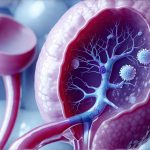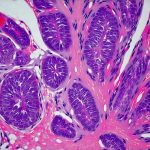Prostatitis, an inflammation of the prostate gland, is a surprisingly common condition affecting men of all ages, though it’s most prevalent in older demographics. The symptoms – ranging from painful urination and frequent urges to discomfort in the groin, lower back, and even sexual dysfunction – can significantly impact quality of life. While bacterial infections are often cited as a primary cause, particularly in acute prostatitis, chronic prostatitis (and chronic pelvic pain syndrome) frequently defies easy diagnosis and treatment. Increasingly, research points towards non-infectious causes, including autoimmune responses, nerve damage, and, crucially, sensitivities to food and environmental triggers. This means that many men suffering from persistent prostatitis symptoms may be unwittingly reacting to substances they consume or encounter regularly, unknowingly exacerbating their condition.
The standard diagnostic approach often focuses on identifying bacterial infections through urine tests and prostate fluid analysis. However, a negative result doesn’t necessarily rule out the source of inflammation. In fact, a significant proportion of chronic prostatitis cases are classified as chronic non-bacterial prostatitis, highlighting the need to explore alternative contributing factors. This is where hidden nutritional patterns come into play. Often overlooked in conventional treatment plans, food allergies and sensitivities can initiate an inflammatory cascade within the body that affects multiple systems, including the prostate. Identifying and eliminating these triggers can be a powerful step towards alleviating symptoms and improving overall well-being. It’s important to understand this isn’t about a dramatic allergy causing anaphylaxis; it’s often about subtle, ongoing inflammation triggered by foods or substances that the immune system perceives as threats.
The Gut-Prostate Connection: How Allergens Inflame
The link between gut health and prostate health is becoming increasingly recognized. A significant portion of the immune system resides in the gut, making it a crucial battleground for identifying and responding to potential invaders. When the gut barrier is compromised – often due to factors like poor diet, stress, or antibiotic use – leaky gut syndrome can develop. This allows undigested food particles and toxins to enter the bloodstream, triggering an immune response that isn’t localized but systemic. This means inflammation doesn’t stay in the gut; it spreads throughout the body, potentially reaching and irritating the prostate gland. Common allergens or sensitivities contributing to this inflammatory cycle include dairy, gluten, soy, corn, eggs, and nuts – all seemingly innocuous foods for many people.
Furthermore, histamine intolerance can play a significant role. Histamine is a chemical released by the immune system during allergic reactions, but it’s also involved in numerous bodily functions. Some individuals struggle to break down histamine effectively, leading to a buildup that causes widespread inflammation and symptoms resembling prostatitis. Foods high in histamine or those that trigger histamine release (like fermented foods, alcohol, and spinach) can exacerbate this issue. Identifying these individual triggers – often through elimination diets guided by a healthcare professional – is essential for reducing systemic inflammation and relieving prostate discomfort. It’s also important to note that the gut microbiome itself plays a crucial role; imbalances in gut bacteria can contribute to increased intestinal permeability and heightened immune reactivity.
Common Hidden Allergens & Their Impact on Prostatitis Symptoms
Beyond the well-known allergens, several less obvious substances can trigger inflammatory responses contributing to prostatitis symptoms. Nightshades (tomatoes, potatoes, peppers, eggplant) contain compounds called solanines that some individuals are sensitive to, leading to joint pain and inflammation – which can manifest as pelvic discomfort. Similarly, oxalates, found in foods like spinach, rhubarb, and chocolate, can contribute to inflammation and crystal formation in the body, potentially exacerbating prostate issues. Artificial sweeteners, food additives (like MSG and artificial colors), and even certain spices can also act as triggers for sensitive individuals.
The challenge lies in identifying these hidden allergens because they often don’t cause immediate, dramatic reactions like a typical allergic response. Instead, they create low-grade, chronic inflammation that slowly builds up over time. Symptoms might appear days or weeks after consuming the triggering food, making it difficult to connect the dots. This is where an elimination diet – carefully removing potential allergens from the diet for several weeks and then reintroducing them one at a time while monitoring symptoms – can be invaluable. A healthcare professional specializing in functional medicine or allergy testing can provide guidance and support throughout this process.
Identifying Your Personal Triggers: The Elimination Diet Approach
An effective elimination diet isn’t simply about cutting out foods arbitrarily. It requires a structured approach to maximize its effectiveness and minimize frustration.
– Phase 1: Elimination (2-3 weeks) – Remove common allergens like dairy, gluten, soy, corn, eggs, nuts, nightshades, caffeine, alcohol, and processed foods from your diet. Focus on whole, unprocessed foods during this phase. Keeping a detailed food diary is crucial for tracking what you eat and any symptoms that arise.
– Phase 2: Reintroduction (1 food per week) – Gradually reintroduce eliminated foods one at a time, over the course of several days to weeks. Monitor your body closely for any changes in prostatitis symptoms or other signs of inflammation (e.g., skin rashes, digestive issues, fatigue). If you experience a reaction, remove that food immediately and wait until symptoms subside before introducing another.
– Phase 3: Personalization – Based on the results of the reintroduction phase, identify foods that trigger your symptoms and create a personalized diet plan that avoids those substances. This isn’t necessarily about permanent elimination; some individuals can tolerate small amounts of their triggers.
It’s vital to consult with a healthcare professional before undertaking an elimination diet, especially if you have underlying health conditions or are taking medications. They can help ensure you maintain adequate nutrition during the process and interpret your results accurately. Remember that consistency is key – sticking to the protocol for the entire duration will yield the most reliable information.
Beyond Food: Environmental Allergens & Prostate Health
While food allergies often take center stage, environmental allergens can also play a significant role in triggering inflammation and exacerbating prostatitis symptoms. Mold exposure, whether indoors or outdoors, is a common culprit, as mold spores can trigger an immune response that leads to chronic inflammation. Dust mites, pollen, pet dander, and even chemical sensitivities (to fragrances, cleaning products, or building materials) can also contribute to the problem.
The challenge with environmental allergens is often identifying the source of exposure. Thoroughly inspect your home for mold growth, consider using air purifiers with HEPA filters, and minimize exposure to dust mites by regularly vacuuming and washing bedding in hot water. If you suspect a chemical sensitivity, switch to natural cleaning products and avoid fragrances whenever possible. It’s also important to be mindful of outdoor allergens during peak seasons. Reducing your overall allergen load can significantly reduce the burden on your immune system and potentially alleviate prostatitis symptoms.
The Role of Inflammation Markers & Functional Testing
Relying solely on subjective symptom reports isn’t always sufficient for identifying hidden allergies and inflammation triggers. Functional testing – a branch of medicine that focuses on assessing underlying imbalances in the body – can provide valuable insights. Blood tests can measure levels of inflammatory markers like C-reactive protein (CRP) and erythrocyte sedimentation rate (ESR), indicating overall inflammation. Specific allergy tests, such as IgG food sensitivity testing or histamine intolerance panels, can help identify potential triggers.
However, it’s crucial to interpret these test results in conjunction with a healthcare professional who understands functional medicine principles. Test results should be viewed as pieces of the puzzle, not definitive diagnoses. A comprehensive evaluation that includes detailed medical history, symptom analysis, and potentially other tests (like stool analysis to assess gut health) is essential for developing a personalized treatment plan. Addressing underlying inflammation and restoring gut health are key components of managing chronic prostatitis symptoms and improving overall well-being. Remember, proactive investigation into potential hidden allergens can empower you to take control of your health and find lasting relief.





















